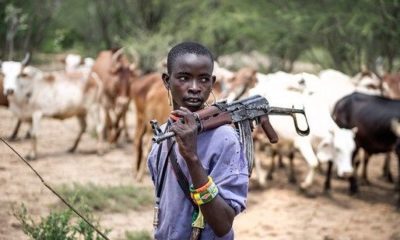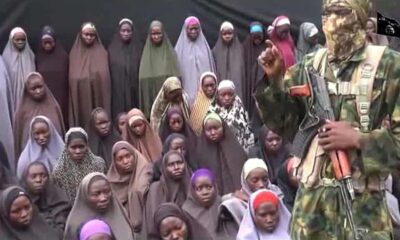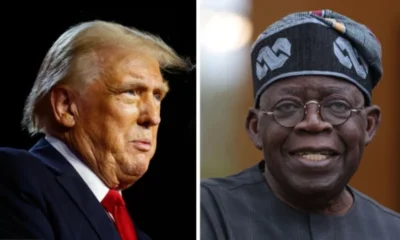
Opinion
Kogi: Real reason White Lion fears the zoo
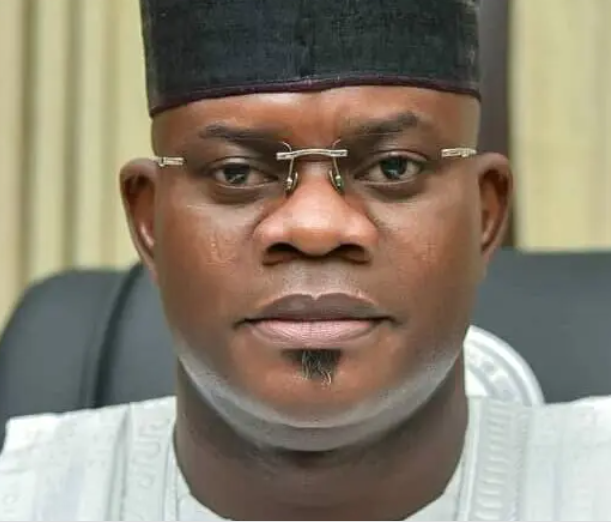
BY IKE ABONYI
“Power does not corrupt men; fools, however, if they get into a position of power, corrupt power.” — George Bernard Shaw
The lion is unquestionably the king of the jungle. With his divine dominion from creation, when man takes over the tropical forest, the entire wildlife there is subject to his command and control. If at that point the lion still behaves uncontrollably, the human being brings his superiority to bear and he quarantines the beast to the cage in a zoo for proper control. At the point of trying to subdue the lion and relocate it from the forest to the zoo, it’s not going to be easy. Risks are involved, other animals might be harmed, but in the end, man’s supremacy prevails.
Nigerians are not new to the uncanny behaviour of some lionized politicians who get entrapped in the end. The drama around the immediate past Governor of Kogi State Yahaya Bello, otherwise known as “the white lion,” is not the first time Nigerian politicians are into such gimmicks and eye-catching novelty. Recall the former Governor of Delta State, James Onanefe Ibori, who was so powerful in office that he even installed most of the key operatives in EFCC and was so sure of himself when late President Umaru Yar’Adua was in control. He was the de facto Vice President, brought in one of his boys as the Principal Secretary at the Aso Rock Villa, ostensibly to dominate and sideline Vice President Goodluck Jonathan.
Someday, President Yar’Adua suddenly died. Naturally, the tables turned and VP Jonathan was installed executive president [forget the surrounding drama for now]. Both the utility principal secretary in the Villa and Ibori were on the run. Unfortunately, for Ibori, the dirty cupboard he left behind as a youth in England had not been cleaned and the authorities in the UK were looking for him. When they heard he had left his natural habitat in Nigeria as a result of his friend’s death, to Dubai, England quickly activated the non-protection of criminals bilateral pact with the UAE and Ibori was arrested, sent to England, was tried, and jailed. This saved Nigeria the cost of hiring lawyers and feeding him both as a suspect and eventually as a prisoner.
So, the journey the White Lion of Kogi is embarking on in his stratagem with EFCC has some resemblance with the above narration.

The same way Ibori was running from the system controlled by his own political party, the People’s Democratic Party is the same way Bello is running from his own ruling party the All Progressive Congress that made him the white lion in Kogi.
The same way Ibori miscalculated against Jonathan who later became the rejected stone that turned the cornerstone, is how Bello miscalculated in rejecting Bola Ahmed Tinubu who is the man in charge today.
Bello’s anti-Tinubu posturing was very well known. He was among many like the former National Chairman of the APC, Abdullahi Adamu, and others who miscalculated Tinubu and who followed Buhari blindly, thinking he would use his presidential might to install their choice. That never happened because of the monetisation of the system. No one could match Tinubu.
Bello even thought that by installing his brother as his successor in Lokoja his matter would be watered down but his offence was uncovered even while he was still serving and didn’t need any new governor to cover up. The best his brother-successor whose fate is still hanging precariously at the petitions tribunal could do was the abuse of his immunity. That was what he did last week, aiding and abetting a criminal suspect to escape arrest.
The only thing that will make the white lion of Lokoja to be so afraid of a visit to the EFCC is that he has a very bad case and already has the premonition of the outcome. Despite belonging to the club where members’ sins do not count against them, Bello’s case may have gone beyond mitigation. Besides, why is a lion afraid of the zoo where it rightly belongs when outside the jungle?
Yahaya Bello’s ignominious journey to the limelight did not start with his cowardly drama with the EFCC. He is in the history book as the youngest person to govern any state in Nigeria in this political dispensation, having been born in June 1975 and sworn in at age 40. All through his eight-year tenure, he held the precedent of being the youngest.
At his inauguration, he was celebrated for his youthfulness by the younger generations who felt the old brigade was yielding place [Tinubu and Atiku must not hear this!]. Bello was looked up to be a catalyst to propel youths to take over of political power in Kogi and this was to be replicated across the country. What did the youths get? A roundly incompetent and confused youth who went to Kogi to muddle up instead of reform the state. In all indices of good governance, Yahaya Bello was a disaster with nothing tangible to lay hands on as a legacy.
The only conspicuous legacy on the negative side for him was his ability to brutally engage his perceived enemies whether in politics or traditional institutions. His drama with Dino Melaye, Senator Natasha Hadiza Akpoti and the late revered royal father of Ebiraland, the Ohinoyi, Ado Ibrahim, were conspicuous.
The cutting off of a road built by Senator Akpoti for her community still remains the weirdest political fight. All of Bello’s youthful exuberance was misdirected to fighting opponents, not in improving the living standard of his people. How he installed his blood brother as his successor in ensuring that the election never took place left all election observers in shock but Nigerians did not blink because they knew from where he picked his electoral misdemeanour with a coadjutant Mahmoud Yakubu still in the driver’s seat of INEC that conducted the bye-elections.
If not for the record left behind by Governor Peter Obi who was elected Governor of Anambra State as a youth at age 46 and turned out to leave an outstanding legacy, Bello would have been a terribly bad market for the youth agitations for political power.
From another angle to Bello’s contrivance, shouldn’t EFCC and security agencies have saved Nigerians from the shameful drama that is now putting some of their operatives in trouble? Was Yahaya Bello not on the wanted list of the commission and was only waiting for his immunity to elapse? Was it not the same EFCC that trailed and caught up with the former Governor Willie Obiano when he left his handover venue and wanted to sneak out and was arrested at the airport?
Was Yahaya Bello not in Lagos to meet with President Tinubu? Even if the Commission did not want to arrest him as the guest of the President, did he not travel by either road or air to Lagos? Were the operatives attached to him signaled to arrest and bring him to Abuja and they failed?
.
Many Nigerians believe that EFCC was waiting for clearance and only got it after Bello met with the President which failed to yield any safe landing for the white lion. This gives credence to the strongly held view that EFCC is shy of official corruption which is their main job and only romances with celebrities and use of naira. Even with all the insults and humiliations faced by the Commission, and the swearing by the EFCC boss Ola Olukayode not a few still believe that Yahaya Bello’s case will end up like the others, dying down with the public kept in the dark when APC reactivates its practice of sin cleansing for its members.
.
Why the Kogi White Lion is needed in the zoo for caging is not necessarily because he did what is abhorred in APC, but because in his youthful exuberance, he miscalculated in his political judgment and dived in the wrong direction when the penalty kick was taken in 2023. Nobody is holding his misadventure in governance in Kogi against him or his poor representation of his generation because he dutifully protected the ruling party’s dubious electoral interest which is paramount.
.
But from whatever perspectives one may want to assess Bello and his eight years of disastrous tenure in Kogi State and the contemptuousness that is trailing him, it’s clear that in him fits the view clearly expressed by Myanmar’s opposition politician and the 1991 Nobel Peace Prize laureate, Aung San Suu Kyi: “It is not power that corrupts but fear. Fear of losing power corrupts those who wield it and fear of the scourge of power corrupts those who are subject to it.” The White Lion may be a failure in governance but he is in the den of failures where performance parameters are no factors of reprimand. God help us.
.
• ABONYI is a Columnist, former Group Political Editor, THISDAY, former Deputy Managing Director of New Telegraph, and Media Consultant who lives in Abuja.
Opinion
2025 World Polio Day: Reflections on Rotary’s Humanitarian Journey — By Max Amuchie
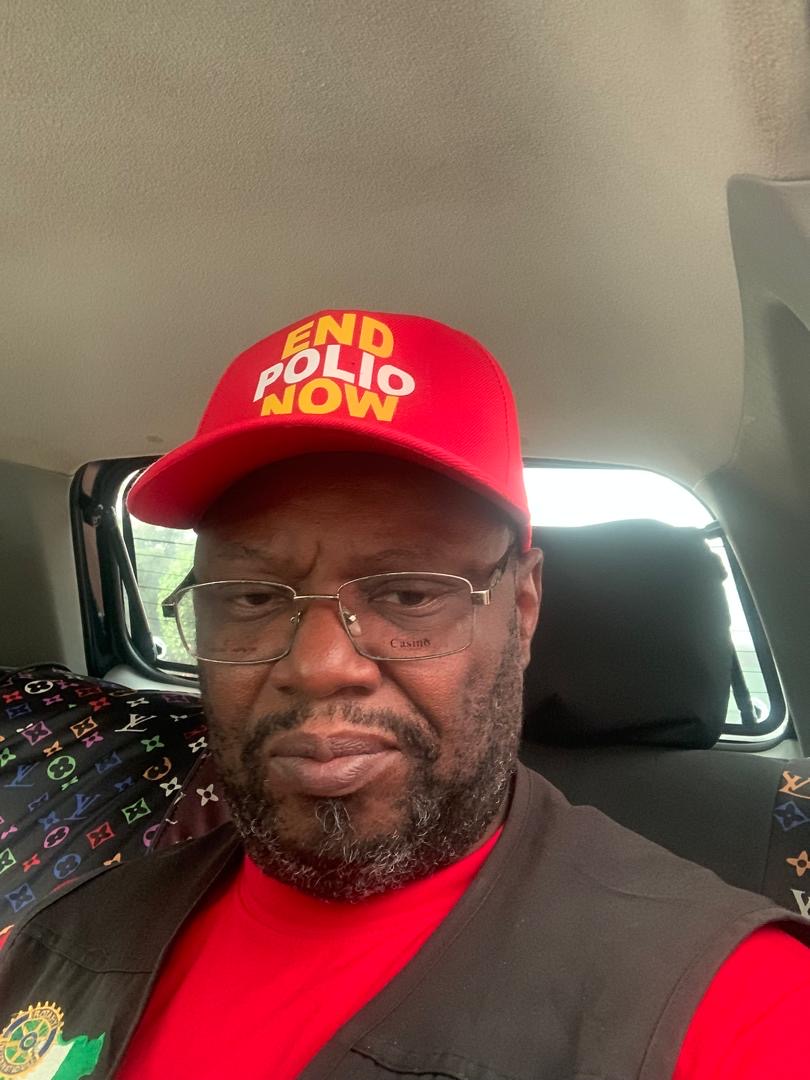
For Rotarians the world over October 24 every year is a significant day, a day set aside to mark the World Polio Day. It also serves to commemorate the birthday of Jonas Salk, the man who developed the polio vaccine. For this year District 9127 under the leadership of the District Governor, Dame (Dr) Princess Joy Nky Okoro, hosted the other five Rotary International District Governors in the country in an all-Nigeria week-long celebration that lasted from October 17 to October 25.
Rotary’s dedication to eradicating polio is one of the most significant efforts in the history of public health and it’s involvement has been a game-changer, demonstrating the power of private-sector commitment to a global health goal.
Rotary began its efforts in 1979 with a multi-year project to immunise children in the Philippines. This led to the launch of PolioPlus in 1985, which was the first and largest internationally coordinated private-sector support of any public health initiative.
In 1988, Rotary joined with the World Health Organisation (WHO), the U.S. Centres for Disease Control and Prevention (CDC), and UNICEF to launch the Global Polio Eradication Initiative (GPEI). The Bill & Melinda Gates Foundation later joined as a key partner.
Rotarians worldwide have contributed over $2.9 billion and countless volunteer hours to the eradication effort. They also play a crucial role in advocating for and securing more than $11 billion in funding from donor governments.
Beyond money

For any Rotarian, the fight against polio is not just a humanitarian project—it’s a four-decade pledge that embodies the organisation’s motto of “Service Above Self.” It’s a commitment that goes far beyond financial donations, representing a unique blend of global advocacy, local action and persistent dedication until the last case of the wild poliovirus is found.
Nigeria’s Triumph: The Eradication of Wild Poliovirus
Nigeria’s success in ending wild poliovirus transmission is one of the most significant public health achievements of the 21st century. As the last country in Africa to eliminate the disease, Nigeria was certified free of wild poliovirus on August 25, 2020, an official declaration that certified the entire African region as wild polio-free.
This victory was the culmination of decades of dedicated effort, overcoming immense challenges ranging from conflict and remote geography to vaccine hesitancy.
In 2012 Nigeria accounted for roughly half of all global wild polio cases. It was a huge challenge, spurring a renewed, national priority effort.
Two years later, 2014 Nigeria was removed from the list of endemic countries and in 2016 the last case of indigenous wild poliovirus was recorded in Borno State.
Finally in 2020 Nigeria and the entire African Region got certified wild polio-free. The ultimate goal achieved achieved after meeting the stringent four-year zero-case requirement.
Nigeria’s victory proved that, with unwavering commitment and global partnership, even the most persistent and devastating public health crisis can be solved.
The Final Vow: Persistence in the Endgame
Rotarians have been fighting polio since 1979. The current stage, with the wild virus remaining endemic only in Afghanistan and Pakistan, demands the highest level of commitment and that’s exactly what Rotary International and Rotarians the world over have given and are committed to continue giving to completely eradicate this disease.
The ‘End Polio Now’ campaign is more than just a public health initiative; it is the single greatest embodiment of Rotary International’s core values. It serves as the clearest articulation of Rotary’s commitment to placing humanitarian causes at the centre of its identity, uniting millions of members behind a singular, transformative goal: to ensure no child ever suffers from the debilitating disease again.
At its heart, the fight against polio is driven by the foundational motto: Service Above Self. This principle demands an enduring, selfless commitment that far transcends local club projects. For Rotary, this translates into mobilising over $2.6 billion, deploying countless volunteer hours, and maintaining a relentless focus across political, geographical, and logistical barriers. It is a long game—a testament to Rotary’s sustained willingness to give its resources, time, and global influence not for credit or recognition, but purely for the well-being of humanity.
The scale of the initiative also perfectly aligns with the value of Fellowship and Global Reach. Polio eradication is a multi-national partnership involving the World Health Organisation, UNICEF, the US CDC, the Bill & Melinda Gates Foundation and the Sir Emeka Offor Foundation but it is anchored by the diverse network of Rotary clubs. Members from over 200 countries and geographical areas have collaborated, demonstrating that differences in culture or language dissolve when faced with a shared humanitarian objective. This global fellowship transforms individual local clubs into a unified force capable of complex, worldwide coordination, illustrating the power of diverse connections focused on a single mission.
Furthermore, the Polio fight embodies Integrity and Perseverance. Eradication is a slow, difficult, and often dangerous task, requiring Rotarians and frontline workers to operate in some of the most challenging regions on Earth like in crisis-hit Northeast of Nigeria. The continuous, ethical dedication required to reach the very last child with the vaccine, year after year, reflects the integrity of the process. There is no simple reward for Rotarians, only the steadfast determination to complete what they started, thereby proving that the commitment to a promise—the promise of a polio-free world—is immutable.
Polio is Rotary’s defining mission because it synthesizes every core value into concrete, life-saving action. It is the gold standard for global volunteering, showcasing how strong leadership, integrity in action, and a unified global fellowship, all centred on “Service Above Self,” can lead to the successful pursuit of the world’s most critical humanitarian objectives. When the final case of wild polio is recorded – that is when Pakistan and Afghanistan become polio free – it will be the ultimate validation of Rotary’s enduring purpose.
Reflections
People join Rotary for a variety of reasons that most times fall into two main categories namely the opportunity for Service and the benefits of Fellowship and Personal Growth.
Rotary has two official mottos. The one commonly cited is ‘Service Above Self’. This is the principal and most famous motto. It embodies the humanitarian spirit of Rotary and its members, emphasising that the primary purpose is to volunteer and serve the needs of others.
The older motto is One Profits Most Who Serves Best: This reinforces the idea that true reward comes from successful service to the community and the world.
If Rotarians live by this dual credo and apply them in their daily lives and in pursuing humanitarian causes, the society and the world will be a much better place.
The fight against polio and Rotarians’ avowed commitment to ensure the total eradication of this disease can be seen in the context of the organisation’s two mottos.
•Dr Max Amuchie, a member of the Nigerian Guild of Editors (NGE) and Associate of the Nigerian Institute of Public Relations (NIPR), is the District Media Relations Chair, Rotary International District 9127
Opinion
Nigeria Happened to ‘Sommie’: Her Death, Bleeding Wound of a Failing State

By Ebuka Ukoh
She was bright and beautiful. Courage and conviction defined her. At 29, Somotochukwu Christelle Maduagwu, also fondly known as ‘Sommie’, was an attorney, rising broadcaster, and advocate for women, children, and her nation. She could have remained in Britain, where she held citizenship, but she chose to return to Nigeria to help make it work.
But Nigeria failed Sommie!
All her passion could not shield her from the ballets of villains—right inside her own home in Abuja, Nigeria’s Federal Capital Territory. Reports say the police were alerted during the robbery incident, yet there was no prompt response. She gave her heart to a nation that could not protect her in return.
Tributes have poured in from the high and mighty. The FCT Commissioner of Police offered condolences. But Nigerians must ask: Are the police a commiseration body, or a constitutional institution to protect life and property? Nigerians do not need sympathy; they need safety.
Nigeria failed her again. When rushed to a hospital, she was reportedly denied treatment for lack of identification; precious time was lost. Do we blame the hospital? Partly. But hospitals here have been punished for acting without paperwork. Like the robbery and the police inaction, this reflects a broken state that normalises death.

Her story joins a tragic chorus: Deborah Samuel lynched in Sokoto, Ammaye beaten to death in Niger, Ojo Peter, the journalist, slain by robbers, and Barnabas, the guard, who died resisting Christelle’s attackers. These are not accidents; they are symptoms of a failing state.
Condolences Without Consequence
Every tragedy is met with promises: “We will investigate,” “We will bring perpetrators to justice.” Yet justice rarely comes. Deborah’s killers posed for selfies and remained free till date. Eunice Olawale’s killers were never prosecuted. Will Christelle’s case be any different?
The message is chilling: if a mob or a gunman kills you in Nigeria, your death may trend for a day, but justice will not follow. When life can be taken without consequence, law itself becomes optional.
Learning From Our African Sisters
Nigeria is not the only country facing violence or weak systems. But others on the continent show us what leadership can do:
These reforms are not perfect, but they prove something vital: African nations can, with will and vision, place value on human life. Why can’t Nigeria?
Way Forward: From Eulogies to Reform
Nigeria’s security crisis is not inevitable; it is a product of choices. To change course, we need:
A Trumpet, Not a Whisper
Somtochukwu’s life was a light. Her death is a wound. Let it also be a trumpet—calling us not just to mourn, but to demand, move, organise and act.
No Nigerian deserves to die the way she did. Not the lawyer in Abuja. Not the farmer in Zamfara. Not the student in Sokoto. None.
We must not settle for a country where “Nigeria happened” is the shorthand for tragedy. We must build one where “Nigeria happened” means resilience, justice, and life preserved.
History will not forgive endless condolences. It will only remember whether we turned grief into governance.
• Mr Ukoh, an alumnus of the American University of Nigeria, Yola, and PhD student at Columbia University, writes from New York.
Opinion
Nigeria @ 65: Time To Retire Excuses

By Ebuka Ukoh
My earliest [but adult] memory of the Nigerian Independence Day celebration dates back to my days at the American University of Nigeria. There, we celebrated as one—irrespective of creed, tribe or tongue—bathed in glitz, glam, and joy. Before then, October 1st was just another public holiday for five-a-side soccer games. At that time, “wetinconsine me,” as we used to say in the popular jingo. But the years have changed me. Independence Day celebrations are no longer distant rituals; Independence Day is now a call to responsibility, to birth the Nigeria we can all be proud of.
Age of Accountability
At 65, nations—like individuals—are too old for excuses. Retirement age is when excuses end and maturity begins. Nigeria must reckon with its age: too seasoned to still stumble over the basics, too blessed to still fail its people.
Yes, hardship is real, more than ever before: food inflation is crippling families; insecurity rages from Zamfara to Plateau; electricity remains epileptic despite billions of dollars invested; the number of out-of-school children tops the global chat; unemployment pushes graduates into despair; and young Nigerians risk deserts and seas to escape. These are legitimate reasons to lose hope. But hopelessness is not an option. At 65, excuses are embarrassing; urgent action is needed.
Nigeria’s Dual Story

The Nigerian story is one of painful contrasts:
Abroad, Nigerians excel in medicine, tech, sports, and the arts. When our resilience meets systems that work, brilliance becomes effortless.
At home, citizens grapple with cash scarcity, unreliable fuel supplies, broken promises, and a leadership culture that normalises dysfunction.
The Ghanaian writer Ama Ata Aidoo once said, “We cannot afford to be mere spectators in our own lives.” Nigerians must not remain spectators in their nation’s destiny. Beyond prayers, we must think, strategise, and act.
Ordinary Heroes
Nigeria’s true wealth lies not in oil wells or government palaces, but in ordinary people who hold the nation together:
Farmers who keep planting and harvesting even as insecurity threatens their lives.
Teachers who, with meagre salaries and under broken roofs, still shape tomorrow’s leaders.
Artisans and informal workers—mechanics, traders, drivers, tailors—who make daily life possible.
Innovators in fintech, climate, and healthcare, who build against all odds.
And there are visionaries like Randy Peters, pressing relentlessly for electoral reform. These doers remind us that patriotism is not a theory—it is a sacrifice.
Retiring Excuses
At 65, a man lives on his investments. At 65, Nigeria must retire excuses and live on the resilience of its people, the richness of its culture, and the brilliance of its diaspora. We can not blame colonial legacies or global conspiracies. The question is simple: will we finally live on what we already have?
Icons Guiding Us
Chinua Achebe once warned, “A man who makes trouble for others is also making trouble for himself.” Our collective shortcuts and excuses are the trouble we keep bequeathing to the young.
Ama Ata Aidoo reminded us that Africa’s freedom is incomplete without women’s freedom. At 65, Nigeria’s maturity must reflect dignity for all, including women and girls.
Kwame Nkrumah’s words still ring true: “We face neither East nor West. We face forward.” Nigeria must finally face forward—with courage, not excuses.
Forward Vision: Africa in Context
Nigeria does not exist in isolation. Africa is the youngest continent, and Nigeria is its beating heart. What Nigeria does—or fails to do—ripples across the continent. If Nigeria rises, Africa rises. If Nigeria falters, Africa bleeds. The battle for Nigeria’s soul is not just national; it is continental. Africa is the future, and Nigeria must lead with clarity, courage, and conviction.
Call To Dignity, Doing
Nigeria at 65 must be a turning point:
Parents, aunties, uncles—remember, children watch what you do more than what you say.
Citizens—demand accountability, mentor the young, and treat one another with dignity.
Leaders—stop trading excuses. Invest in people, not propaganda.
Suppose we can respect embassies with our punctuality, honour hospitals with our presence, and fill religious gatherings on time. In that case, we can also respect one another enough to build orderly roads, demand transparent budgets, and hold leaders accountable.
Retire Excuses, Reclaim The Future
Nigeria is too old to be this careless. Too gifted to be this wasteful. Too promising to be this stagnant. Nigeria cannot be rebuilt on excuses. It must be rebuilt on courage, competence, and compassion. If we can shine abroad, we can thrive at home. If we can pray with faith, we can also act with purpose.
The day we stop celebrating optics and start demanding outcomes will be the day Nigeria grows up. The future is already watching—in the eyes of our children. They deserve a Nigeria where dignity is normal, where leaders are accountable, and where citizenship is an honour, not a burden.
At 65, excuses must retire. Action must begin. For the sake of our children, for the honour of our heroes past, and for the soul of Africa’s future—Nigeria must finally grow up.
The time is now.
-

 News4 hours ago
News4 hours agoBREAKING: FG bans open cattle grazing nationwide
-

 News2 days ago
News2 days agoNigeria Under Siege: 2,496 students abducted in 92 school attacks since Chibok
-

 News2 days ago
News2 days agoBREAKING: 50 abducted Niger Catholic school students escape, reunite with families — CAN
-

 News1 day ago
News1 day agoBoko Haram beheads two women over alleged idolatry
-

 News2 days ago
News2 days agoJUST IN: 38 abducted Kwara church worshippers regain freedom
-

 News2 days ago
News2 days agoTinubu orders withdrawal of police officers guarding VIPs
-

 News1 day ago
News1 day agoTrump asks Tinubu to hunt down bandits behind school kidnappings
-

 News2 days ago
News2 days agoNDLEA detains 20 Filipino Crew over cocaine shipment from Brazil










